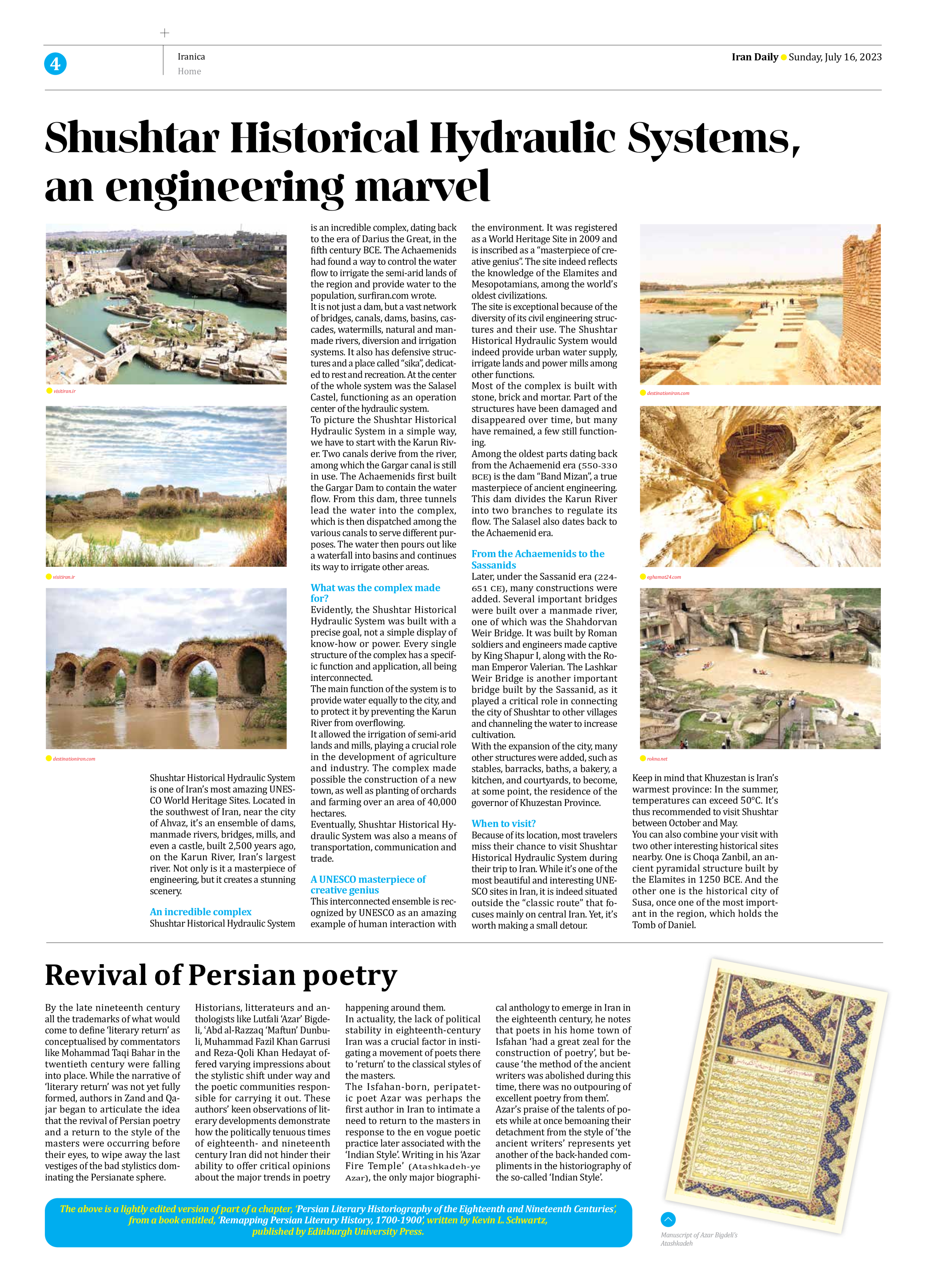
Revival of Persian poetry
By the late nineteenth century all the trademarks of what would come to define ‘literary return’ as conceptualised by commentators like Mohammad Taqi Bahar in the twentieth century were falling into place. While the narrative of ‘literary return’ was not yet fully formed, authors in Zand and Qajar began to articulate the idea that the revival of Persian poetry and a return to the style of the masters were occurring before their eyes, to wipe away the last vestiges of the bad stylistics dominating the Persianate sphere.
Historians, litterateurs and anthologists like Lutfali ‘Azar’ Bigdeli, ʿAbd al-Razzaq ‘Maftun’ Dunbuli, Muhammad Fazil Khan Garrusi and Reza-Qoli Khan Hedayat offered varying impressions about the stylistic shift under way and the poetic communities responsible for carrying it out. These authors’ keen observations of literary developments demonstrate how the politically tenuous times of eighteenth- and nineteenth century Iran did not hinder their ability to offer critical opinions about the major trends in poetry happening around them.
In actuality, the lack of political stability in eighteenth-century Iran was a crucial factor in instigating a movement of poets there to ‘return’ to the classical styles of the masters.
The Isfahan-born, peripatetic poet Azar was perhaps the first author in Iran to intimate a need to return to the masters in response to the en vogue poetic practice later associated with the ‘Indian Style’. Writing in his ‘Azar Fire Temple’ (Atashkadeh-ye Azar), the only major biographical anthology to emerge in Iran in the eighteenth century, he notes that poets in his home town of Isfahan ‘had a great zeal for the construction of poetry’, but because ‘the method of the ancient writers was abolished during this time, there was no outpouring of excellent poetry from them’.
Azar’s praise of the talents of poets while at once bemoaning their detachment from the style of ‘the ancient writers’ represents yet another of the back-handed compliments in the historiography of the so-called ‘Indian Style’.
The above is a lightly edited version of part of a chapter, ‘Persian Literary Historiography of the Eighteenth and Nineteenth Centuries’, from a book entitled, ‘Remapping Persian Literary History, 1700-1900’, written by Kevin L. Schwartz,
published by Edinburgh University Press.







